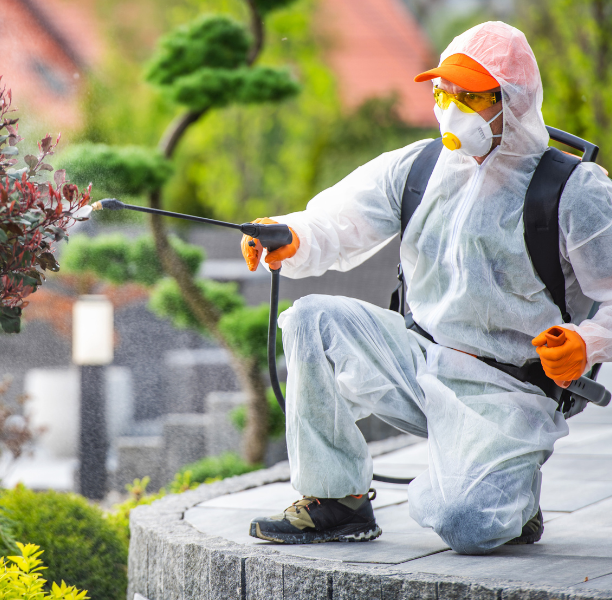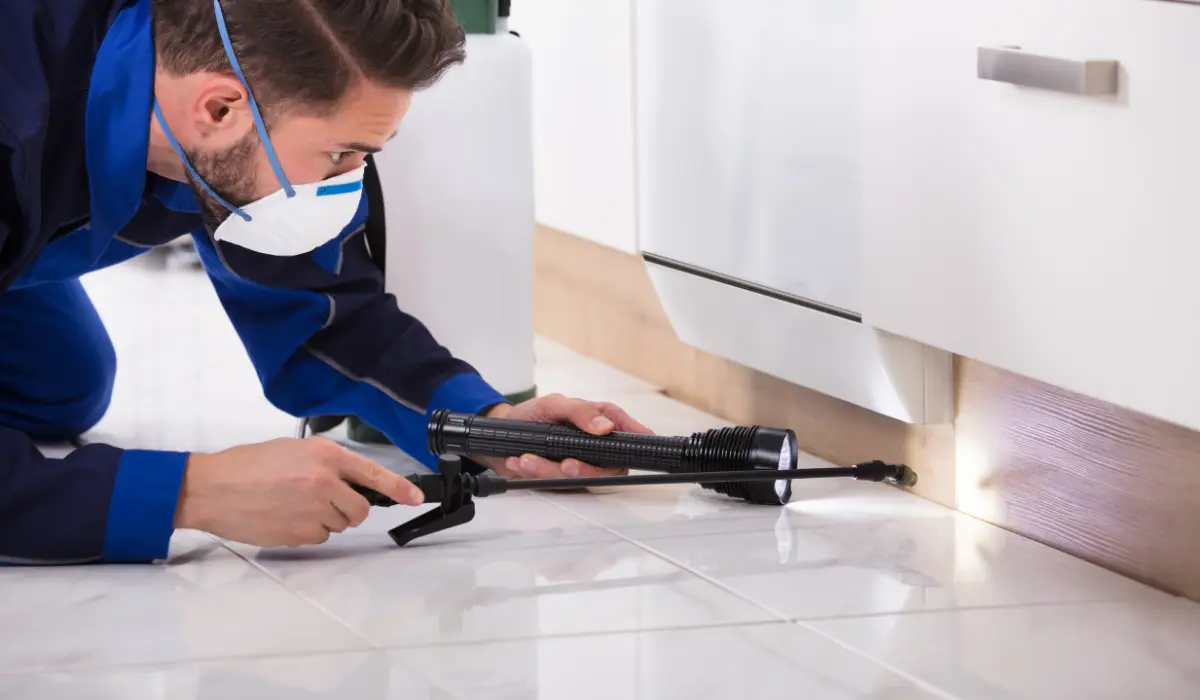Safe and Dependable Bug Control for Lasting Protection
The value of reliable and secure parasite control can not be overemphasized, particularly in an age where environmental concerns are vital. Reliable bug management calls for a complex method that stabilizes eco-friendly integrity with the demand for effective bug suppression. By checking out environment-friendly options and incorporated insect monitoring techniques, homeowners can attain long lasting security against intrusive species while safeguarding useful communities. The nuances of these approaches might not be quickly clear, prompting a closer evaluation of the methods that can lead to lasting parasite control results. What actions can be taken to ensure both safety and efficacy in pest management?
Recognizing Bug Control Techniques
Parasite control includes a range of approaches targeted at managing and eradicating undesirable insects and rodents that can threaten both wellness and home. Comprehending these approaches is important for effective bug management.
The main classifications of parasite control methods consist of mechanical, organic, and chemical strategies. Mechanical methods entail physical obstacles and traps to prevent parasite access and capture undesirable types. For instance, utilizing screens on home windows or using sticky traps can significantly minimize parasite populations without presenting harmful materials.

Chemical bug control is usually the most recognized method, utilizing pesticides to get rid of parasites. These chemicals can be efficient however need to be utilized with care to stay clear of negative effects on non-target types and the atmosphere.
Benefits of Eco-Friendly Solutions
Just how can eco-friendly remedies transform parasite control methods? The fostering of environment-friendly bug control techniques supplies many advantages, significantly boosting the efficiency and safety of pest monitoring.
An additional benefit is the positive influence on neighborhood biodiversity. Environment-friendly solutions are developed to target particular insects while maintaining advantageous bugs and wildlife, advertising a balanced environment. This strategy straightens with the growing consumer need for sustainable methods, enhancing the reputation of parasite control service providers.
Integrated Insect Monitoring Approaches
The execution of eco-friendly services normally brings about the fostering of Integrated Insect Management (IPM) approaches, which further boost bug control efficiency. IPM is a holistic strategy that integrates several strategies to take care of parasite populaces while decreasing ecological effect. This method highlights using organic, cultural, mechanical, and chemical controls, ensuring a sustainable and balanced technique of bug management.
One fundamental aspect of IPM is the detailed analysis of bug task and ecological problems. By keeping track of parasite populaces and determining their life process, specialists can execute targeted treatments that interfere with the parasite's environment or lifecycle, decreasing dependence on chemical pesticides. Furthermore, cultural practices such as crop turning and habitat manipulation can considerably reduce parasite facility and reproduction.
One more essential element is using organic control agents, such as advantageous insects or microorganisms, which can check over here normally suppress parasite populations. When chemical applications are essential, IPM focuses on making use of low-risk chemicals and uses them selectively, decreasing exposure to non-target microorganisms and human beings.
Integrating IPM strategies not only improves bug control efficiency yet also advertises a much safer ecological community, lining up with the expanding need for lasting practices in bug administration.
Safe Practices for House Owners
Understanding the significance of risk-free practices in bug control can equip house owners to effectively handle bug problems while guarding their health and the environment. Implementing non-toxic approaches and preventative steps is vital in decreasing direct exposure to harmful chemicals.
Home owners need to first evaluate their atmosphere for problems that draw in bugs, such as standing water, mess, and food waste. Regularly cleaning and securing entry factors can prevent bugs from getting into the home. Making use of all-natural deterrents, such as crucial oils or diatomaceous earth, can supply efficient options to chemical pesticides.
When visit their website chemical therapies are required, homeowners should select items that are especially identified as risk-free for residential use. It is important to adhere to application standards thoroughly to prevent overexposure. Moreover, using targeted treatments in locations where parasites are recognized, as opposed to covering splashing, can dramatically decrease chemical usage.
Lastly, keeping open communication with pest control experts is vital. Homeowners ought to ask about the security of products utilized and request eco-friendly choices whenever possible. By embracing these risk-free techniques, house owners can create a healthier living atmosphere while efficiently handling insect concerns.

Tips for Long-Term Defense
Developing a bug management method that highlights long-term security can greatly enhance the effectiveness of the safe methods formerly reviewed. To attain this, homeowners ought to carry out routine examinations of their home, concentrating on concealed locations such as attics, cellars, and crawl areas. Early discovery of parasite task is important in avoiding invasions from holding.
Furthermore, keeping a clean environment is essential. This includes appropriate food storage space, immediately cleaning up spills, and regularly disposing of trash. These techniques decrease attractants that draw insects into the home. In addition, securing access points, such as splits around doors and home windows, can properly obstruct potential parasite accessibility.
Landscape design ought to also be taken into consideration; maintaining plants trimmed and preserving a distance between plants and the home minimizes concealing areas for pests. Making use of all-natural deterrents, such as crucial oils or diatomaceous planet, can additionally inhibit problems without turning to harsh chemicals.
Lastly, working together with a professional parasite control service for routine click this site analyses can supply an extra layer of safety. These specialists can provide customized suggestions and progressed therapies, making sure that your home remains secured versus bugs in the long-term.
Final Thought
Finally, reliable and risk-free bug control needs a multifaceted technique that stresses eco-friendly approaches and integrated bug monitoring. By applying natural deterrents, carrying out normal examinations, and keeping proper cleanliness, property owners can dramatically reduce bug populations while securing beneficial bugs and the atmosphere. Collaboration with expert pest control solutions enhances the efficiency of these techniques, making certain tailored remedies that give long lasting security and comfort against future infestations.
Effective insect administration calls for a multifaceted approach that balances eco-friendly integrity with the requirement for efficient insect reductions. The adoption of green parasite control approaches provides various benefits, considerably enhancing the efficiency and security of bug management.The implementation of eco-friendly solutions normally leads to the adoption of Integrated Bug Administration (IPM) methods, which even more improve bug control effectiveness. exterminator coquitlam. By checking pest populations and identifying their life cycles, specialists can implement targeted interventions that interfere with the parasite's habitat or lifecycle, decreasing reliance on chemical pesticides.In final thought, safe and reliable insect control needs a diverse approach that stresses environmentally friendly techniques and integrated bug management